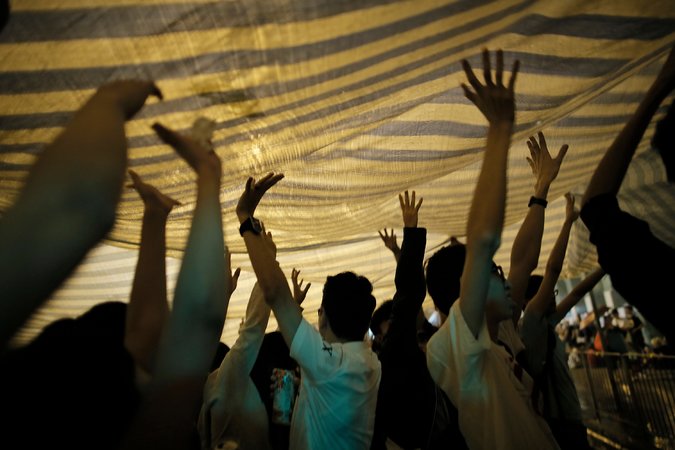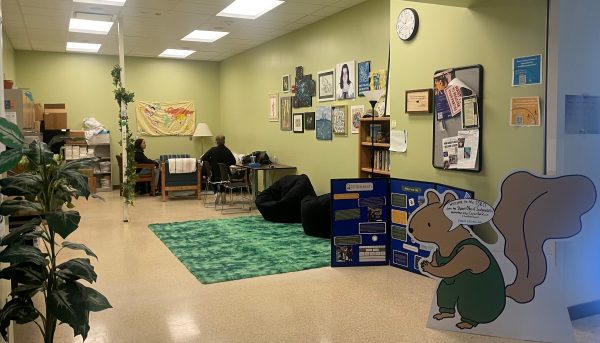Demanding democracy
Being in America offers new perspective on protests at home for Chinese student and scholar
Ricky Liang may be spending his academic year as an international student from Mainland China at UW-Eau Claire, but he is currently keeping a close eye on what is happening back home.
For two weeks, student-run protests, which are being called Occupy Central, have filled the streets of Hong Kong. Two of Liang’s cousins are among the protesters who claim to be after better democracy.
“I am a Mainland Chinese student, but most of my family lives in Hong Kong and we do business between Hong Kong and the mainland,” Liang said. “I support them because they are speaking for democracy, but I think there could be a solution. If the mainland promises democracy, I think Hong Kong should promise them they wouldn’t separate.”
According to an article published by The New York Times, the protests, which overran the streets of Hong Kong for two weeks, have begun to dissipate. The article states the primary reason for the protest’s original outbreak was Beijing’s decision to alter the process of how Hong Kong elects its leader.
Liang said the most interesting part about being in the United States while the protests unraveled near his home was seeing both sides of the issue on Internet news sources and social media platforms. Since the Chinese government controls the press, people on the mainland only have access to government-approved news, Liang said. There is little to no access to Hong Kong news sources, he said.
“Many mainland people are against the protests because they just get a part of (the news) offered by the government,” Liang said. “I read the reports from Mainland China stating that (Hong Kong) is trying to separate, but it is actually about democracy.”
Liang noted he has tried to tweet at people in Mainland China to let them know what he is seeing on the news; however, his tweets have been blocked on multiple occasions.
While Eau Claire does have study abroad programs in China and Hong Kong, no students are currently enrolled in those programs, said Jenna Krosch, study abroad coordinator.
Bill Zhang, a visiting scholar from China in the management and marketing department, said Chinese citizens see protesting as a positive thing. The right to protest is relatively new in China, and to be done legally, it requires the permission of the government, Zhang said.
“Protests should be limited in areas and shouldn’t destroy public traffic,” Zhang said.
Zhang, who has visited Hong Kong numerous times, said the relations between Mainland China and Hong Kong have been relatively positive since Hong Kong was handed over to China from British control in 1997.
Mainland China and Hong Kong work well together despite their different systems, Zhang said. He noted Hong Kong serves as a bridge between China and the rest of the world in terms of business and investments.
“Hong Kong is the pearl of the East,” Zhang said. “It has a high reputation in China and through the world.”
Liang, however, whose hometown of Guangdong is near Hong Kong, said there was tension between Mainland China and Hong Kong well before the current protests broke out.
“(It’s) interesting being in the situation like me who can receive both side’s information,” Liang said. “I am still kind of confused about who is the right side. But so far, I still support my cousin who is in the protests.”






